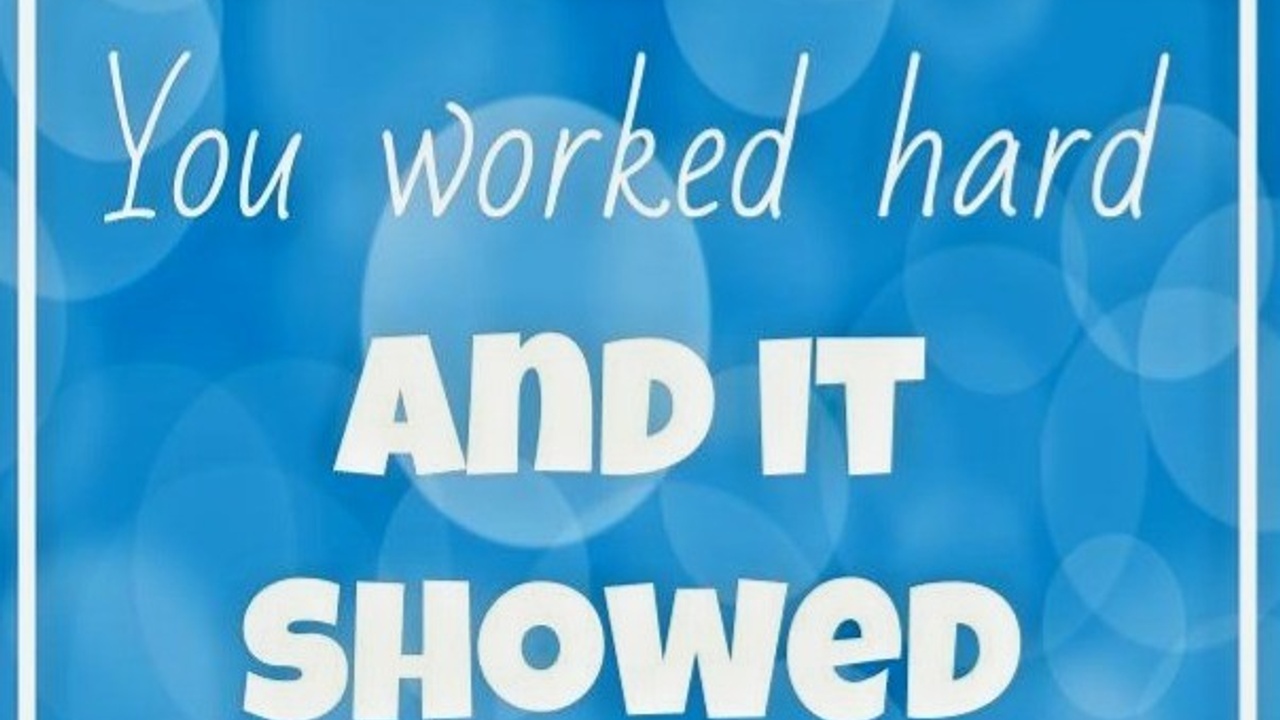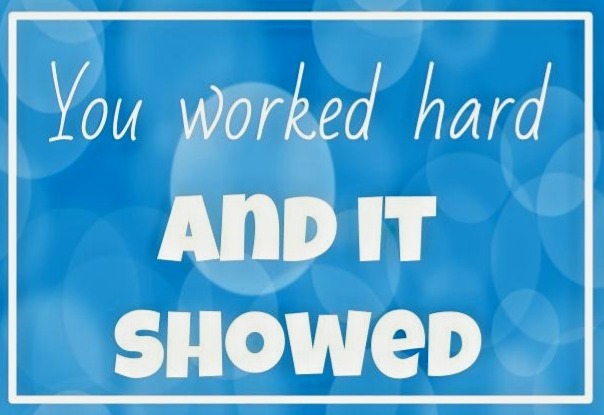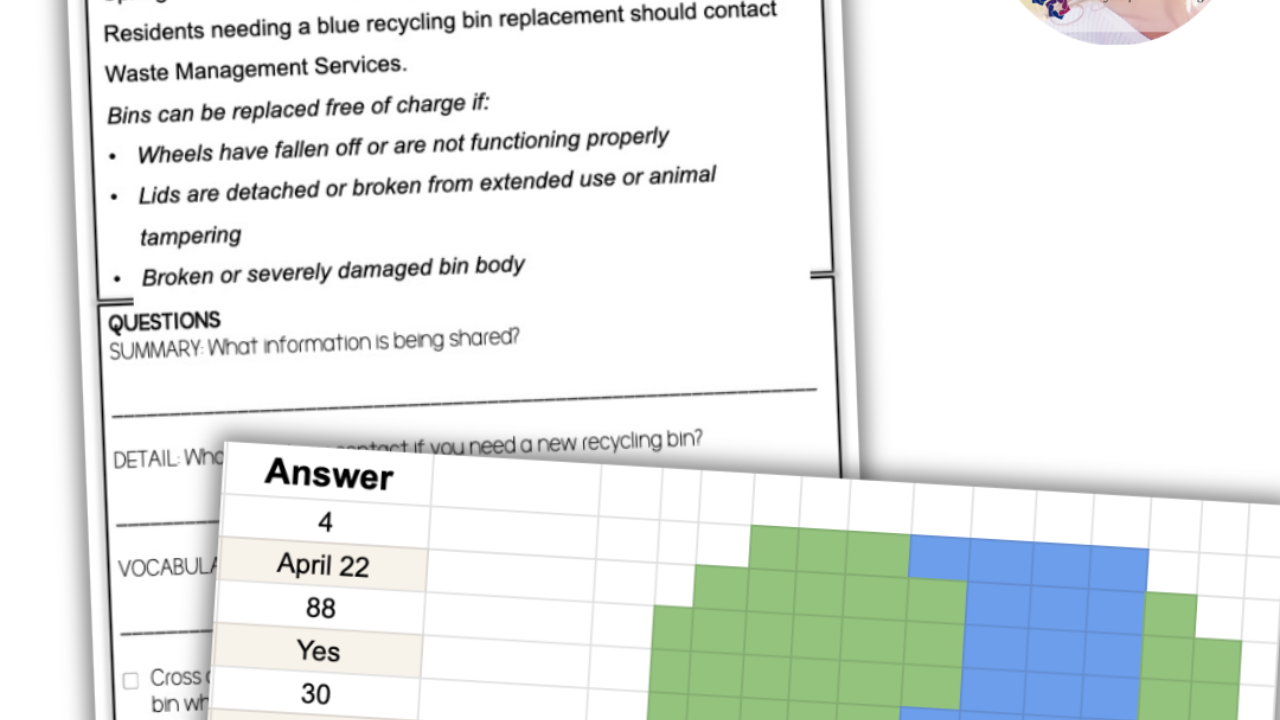How to Improve as a Teacher: Reflect Back & Plan Forward
May 06, 2020
Three cheers for the calendar that shows that it’s that very special school-year-is-almost-over time! I know that my planning slows down, the IEP meetings are done and over, and I’ve resorted to the most boring lunches ever. The end is so close that you can basically taste the sweet smell of summer freedom (man, does it taste SOOOO gooooooooood)! Now is when I reflect back, plan forward, and work to improve as a teacher.
I like to take the sporadic few minutes of down time during the school day to both reflect back and plan forward for the next year. I don’t typically do all of this thinking in one day, I like to span it over the last month of school, sometimes during a few long drives home from work (my commute is about 1 hr), and into the first month of summer.
If you are a new teacher looking to up your game or a veteran teacher looking to jumpstart your next year, I challenge you to Improve as a Teacher by thinking through these 11 Plan and Reflect thought prompts.
Improve as a Teacher: REFLECT BACK
Think about the whole student.
-
Does your schedule allow you to address all areas- social, emotional, physical, mental, safety, etc, etc, etc?
-
Does ‘the student’ get into the community enough (weekly or daily), do they have a well rounded vocational experience (group and independent), are they exposed to different parts of their community (more than 1 grocery store), do they have the opportunity to learn social skills and practice them in a safe environment (related service lessons or in the classroom), are they working on skills to increase independent living skills (are they the skills that the family has prioritized), are the skills you are teaching still relevant and important for them to learn and use long term?
How can you update/change/improve your paperwork system?
-
Could you create a document (Excel or Sheets) of each student’s primary/secondary eligibility, related services, current government benefits, best ways to contact families, allergies, and IEP meeting due dates.
-
Would setting calendar alerts/appointments for IEP annual reviews and re-evaluations 1 month before they are due be helpful?
-
Do you use a call log or just document your phone call notes on a post-it note, which you date and then slap on their hanging file folder (guilty as charged- but it works for me)?
-
How do you share valuable IEP information with support staff? Is that method the best way for them to access the information? Is there confidentiality issues with that method?
-
How do you gather information from families throughout the year? (May I suggest an Informal Transition Meeting)
Did you share just as much good news as you did bad news?
-
Did the emails about behavior and poor choices outweigh the good phone calls and notes home?
-
Should you set-up calendar reminders now to send positive notes home periodically? (Sign up for my newsletter to get FREE positive postcards to send home- example below)
-
Are the student’s aware of the good news you share? Do they have input of who you share the good news with? *I ask my students who they want me to call/email with their good news and I ALWAYS get an answer!

Ask support staff about what they observe in other classrooms that is successful
-
If your support staff are in more than one classroom or setting, get their feedback and find out why they like the systems, techniques, or approaches that the other teachers/staff are using.
What worked, what could be better, what didn’t work
-
Use that good old 3 column chart structure, your favorite pen, and be honest, really honest!
Improve as a Teacher: PLAN FORWARD
Check your Instagram Saved posts, Pinterest Pins, favorite blog posts, and TPT author store
-
If you are on any type of social media, then you should be formally saving those great ideas you run across. On Instagram use the tag under the lower right corner of a post to save it on Instagram (visual below). (Find the posts you’ve tagged- In your profile view (your profile picture page) click the 3 horizontal lines at the top right corner, then click Saved ). Follow me HERE! Review the pins you’ve saved to your favorite teacher board, click through and fully read about the pin. If you use Facebook, do the same (I don’t Facebook, so I’m not sure how).
Brain dump, print, and put in a place you will reference!
-
I like to have an open ‘Ideas for 20XX-20XX’ Google Doc open in my browser starting around February/March to start adding things I want to do for the next year. I do go back and reference old Docs to see if there are any great ideas that I couldn’t roll out in the past that I may want to try next year.
-
If you are afraid you are going to lose or forget to reference it, then print it and add the paper copy to your binder/hanging file/folder for next year.
How can you use technology to make something easier?
-
I have an Alexa in my classroom and I sync it with my teacher gmail Calendar. I add in reminders for therapy groups, community outings, days off from school, birthdays and more. As part of our morning routine, I say ‘Alexa, Start my day.’ and she rattles off general reminders.
-
I also set a Reminder through Alexa to tell my students when they can load the bus to go home. We've eliminated the 'different clocks, different time' issue and students know to wait until Alexa announces- It's time to go home!
What new routines could you establish to streamline a messy time or task?
-
Due to a change in schedule, my cooking class ran differently this year. I found that I had anywhere from 1 hr 15 mins to 45 mins after cooking for a lesson. I decided to start using this awkward and unpredictable amount of time for students to practice independent functional math practice.
-
Is the morning streamlined? Do students know what bus or class to go to for the rest of the day? How do you approach teaching this executive functioning skill? Do you revisit it after winter break? Could students set alarms in their own devices to increase their independence?
-
Is the end of day smooth? If trouble arises during this time, do you have ‘End of Day Responsibilities’ that would help clean up the classroom (meaningful independent living skills practice) and provide 1-3 minutes of structure?
-
Are students late to your class? What is your protocol and is that effective?
-
Are students' lockers a mess? What organizational systems are you helping them learn to keep their space clean? Could you teach them about the KonMari method and help them pare down their belongings and use old shoeboxes to organize their things
Ask questions to fellow educators (in person, online, or through blogs)- what do they do in similar situations?
-
I was once told that teaching is the great art of thievery- steal all the good ideas and use them yourself. It’s actually really true!
-
Have you asked a veteran or new teacher about how they structure ‘X’ time with success?
-
How do they respond to parents who are upset or want something different/more?
-
What are your favorite teachers on social media doing? Send them a DM and ask!
-
Is there a training you could attend (next school year) to help you learn the skills you need
Set up time with incoming student’s previous teachers/case managers to gather valuable information that may not be written in the IEP
-
If your school doesn’t do this, then start it! There is so much left unsaid on the IEP (typically for good reason), so get in the habit of getting the details before the student steps foot in your classroom. The summer will give you a chance to reflect and prepare!
Summer is meant to reset and refocus and I firmly believe teachers need that extended period of time to prepare for the next year. Whether you need to Reflect back or Plan forward, taking the time to improve as a teacher so that you can improve your students’ experience in your classroom is honorable- three claps to you!
P.S. If you really want to get ahead, download my Back To School To-Do list and get going!
















